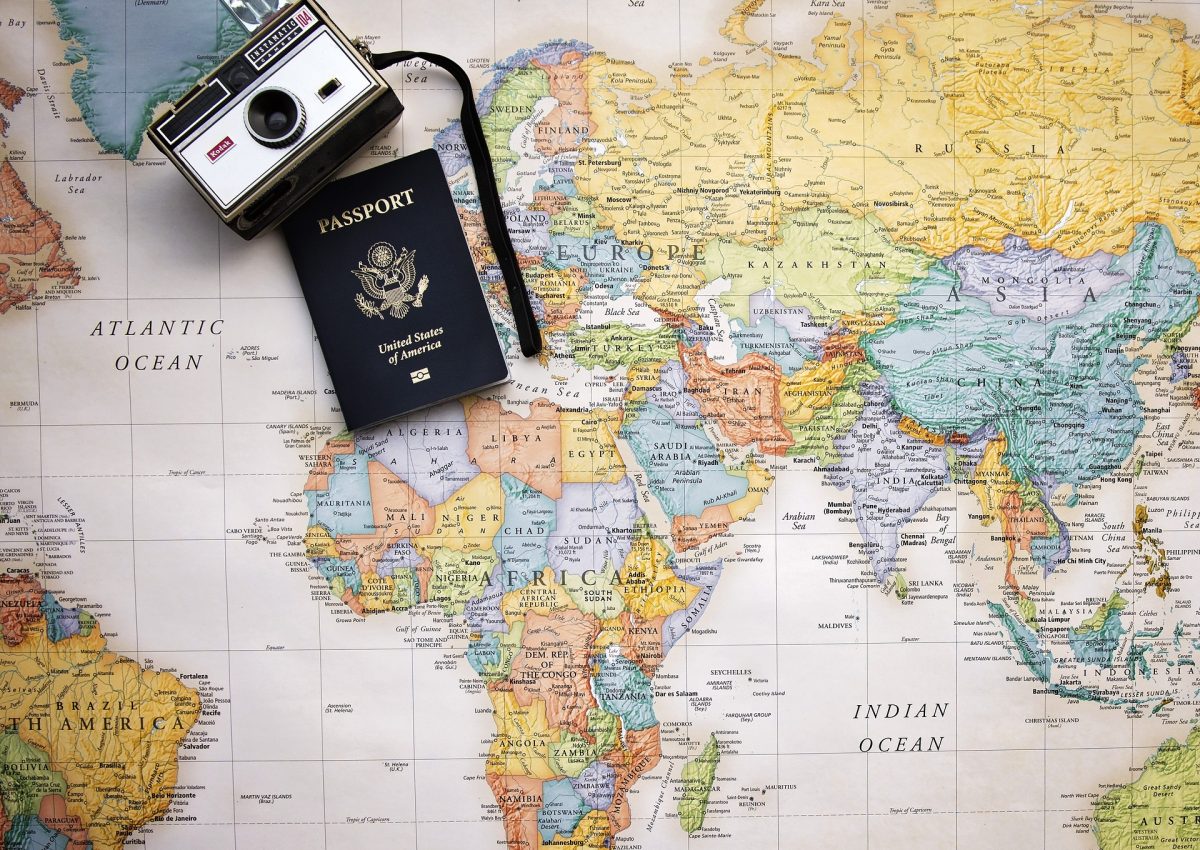
Important: The information is reproduced from an Australian website for your information, understanding and reference to an international insurance context.
Please check with us for India specific terms and conditions, benefits and exclusions before making any decision.
Travelling interstate, overseas or to another city for personal or business reasons involves planning, expense and unfortunately, some risk too. Some of these risks could include the financial losses you experience due to travel changes, cancellation or interruption, medical expenses, baggage damage or theft, and more.
A travel insurance policy can provide you with cover you may need for financial losses caused by a wide range of events that can affect your trip, whether they occur before, during or even after your trip. Travel insurance should be a priority in all travel arrangements, whether you travel regularly, occasionally or you are setting off on a once-in-a-lifetime trip. Some holidays, such as ski trips or voyages on cruise ships, may require special policies.
When you’re travelling overseas, the Australian Government advises[1] that travel insurance is as important as a passport, regardless of your destination.
It’s important to remember to purchase a travel insurance policy as soon as you have paid for your trip. That way you may be covered for unused travel and accommodation expenses if you need to cancel your trip due to an event covered by your travel insurance policy, such as illness or a natural disaster.
Travel insurers offer a variety of policies that include cover for individuals, families and couples, and some also offer multi-trip and annual policies for frequent travellers.
Important: The information is reproduced from an Australian website for your information, understanding and reference to an international insurance context.
Please check with us for India specific terms and conditions, benefits and exclusions before making any decision.
Emma Carey was fortunate to have travel insurance when her parachute didn’t open while sky diving in Europe. Read her story here
Domestic travel insurance
Many Australians don’t think about buying insurance when going on shorter trips within Australia but costs and expenses can quickly add up if things go wrong.
A domestic travel insurance policy can provide you with cover for delays, cancellations, loss of or damage to luggage and personal effects, and personal liability. It may also provide cover for the rental vehicle insurance excess paid for unexpected scrapes in rental cars and emergency accommodation.
It’s important to check the details of your travel insurance policy to ensure you have the right cover for your travel plans. Some activities, such as adventure sports, pre-existing medical or mental health conditions, may be excluded or require payment of an additional premium.
International travel insurance
There is a lot to consider when travelling overseas. Travellers need to be wary of potential language barriers, different systems and laws, cultural nuances and the impact of unexpected delays and access to local health services if things happen to go wrong. Simple incidents that you may be able to easily manage in Australia can quickly become expensive and difficult to negotiate when you are in another country.
Most international travel insurance policies include a fixed amount of cover for overseas medical and dental expenses, lost or stolen luggage, liability cover, accidental death or disability, and expenses if you incur a financial loss due to delays, cancellations or rescheduled arrangements. Some travel insurance policies offer additional services, such as 24-hour medical emergency translation, which can make a huge difference to the quality of treatment you get while travelling.
It is important to consider that medical treatment in some countries can be exceptionally expensive and in some cases you may need to guarantee payment to be admitted to a hospital and receive treatment. When you travel overseas, you are personally liable for covering your medical costs. The Australian Government does not cover overseas medical expenses or emergency evacuation home.
For example, it is not uncommon for a short stay in a US hospital to cost in the tens of thousands of dollars. According to the Department of Foreign Affairs and Trade (DFAT), the cost of medical evacuations from the United States regularly range from $75,000 to $95,000 and up to $300,000. DFAT also advises hospital costs in South East Asia exceed $800 a day and medical evacuations have cost more than $60,000.
Travellers who are not covered by insurance are personally liable for covering the medical and associated costs they incur overseas
Each year, DFAT helps more than 20,000 Australian travellers in difficulty overseas including assisting with 700 hospital admissions, 600 deaths and 100 evacuations of Australians to another location for medical purposes. However while DFAT and other Australian Government agencies can help you access overseas services and treatment, they don’t pay for any of their costs, such as legal fees, emergency flights or medical care.
DFAT’s Smartraveller website has up-to-date travel advice, news, guidance and important information for Australians travelling overseas. See more advice about travel insurance from DFAT here.
Did you know?
Of those who took out travel insurance policies on their last trip overseas, more than half (54 per cent) may have been unknowingly underinsured, having either not declared a pre-existing medical condition and/or engaging in risky activities without being certain of their coverage.
Credit card travel insurance
Some financial institutions may include travel insurance cover with their credit cards.
As with any insurance product, it is important to carefully read the Product Disclosure Statement (PDS) to make sure you meet the requirements to qualify for this cover and that the policy has the right cover for your needs.
You should also ensure the extent of the cover provided by your financial institution is going to be enough for the place you are visiting.
Important: The information is reproduced from an Australian website for your information, understanding and reference to an international insurance context.
Please check with us for India specific terms and conditions, benefits and exclusions before making any decision.
Choosing a policy

The travel insurance market has a variety of travel insurers with a range of policies that cater to the different needs of all Australians. It is important to note that each travel insurance policy has specific limits on each of the included benefits. It’s important to shop around for a travel insurance policy that provides right level of cover for your individual circumstances and travel plans. The cheapest policy may not best suit your needs.
Read the Policy Document and Product Disclosure Statement (PDS) carefully to make sure that the risks that are important to you are covered – and that the amount of coverage provided is adequate for you.
When choosing a travel insurance policy you should find out:
- What is included in the policy
- What is excluded, and how this compares with your intended activities
- How to contact your travel insurer when you are overseas
- What paperwork or information you need to take with you
- The dollar limits for claims on individual benefits and as a whole
- The proof you might need if you make a claim
- The cost of the premium
- The amount of excess you would pay on a claim
You should buy a travel insurance policy that provides cover for all the destinations you travel to and for the full duration of your trip. Inform your travel insurer if you decide to extend your trip to check if you can extend your current policy or need to purchase another one. Pregnant women can be at additional risk when travelling, so make sure you’re covered by your policy.
Important: The information is reproduced from an Australian website for your information, understanding and reference to an international insurance context.
Please check with us for India specific terms and conditions, benefits and exclusions before making any decision.
Exclusions

Along with the various types and limits of cover provided by a travel insurance policy, there may also be different exclusions, or circumstances under which your policy will not cover you.
Your Product Disclosure Statement (PDS) will list all of the exclusions that apply under your policy. Make sure you have read and understood the Product Disclosure Statement (PDS) before you buy your policy.
Common exclusions may include, for example:
- Pre-existing medical or mental health conditions
The PDS will detail the types of pre-existing medical or mental health conditions that your insurer won’t cover. However, some travel insurers do automatically provide cover for certain pre-existing medical or mental health conditions or will provide it at an additional premium, depending on the severity of the condition. If you are not sure about whether you have a medical or mental health condition that needs to be declared, you should contact your insurer and discuss it. Not declaring pre-existing conditions to your travel insurer when purchasing your policy may result in the insurer refusing to pay some or all of any claim you make later. Travellers with pre-existing conditions are often able to get general travel insurance, although the insurer may exclude claims that arise from that particular illness or condition. You can find a list of insurers that provide cover for mental health conditions here: www.findaninsurer.com.au/category/76173
- Motorcycles, mopeds and scooters
Most travel insurers will not provide cover for riding a motorcycle or moped while overseas, particularly if the rider does not hold a full Australian motorcycle licence and is not wearing an appropriate helmet. Some insurers will cover motorcycles, mopeds or scooters under certain strict conditions or for an additional premium. Many countries require a local licence to drive or ride a motor vehicle and an Australian licence may not be sufficient. Even if your policy covers use of a more vehicle or motorbike, travel insurers are likely to deny a claim if the traveller is unlicenced, does not hold the required local licence or does not hold the correct class of licence in Australia for the vehicle driven.
- Adventure sports
Some activities are often excluded from travel insurance policies or may require an additional premium to be paid. These activities can include snowboarding, skiing, surfing, rock climbing, kite surfing, hunting, bungee jumping, parachuting, riding motorbikes and scuba diving. If you are planning on pursuing these types of adventure travel or outdoor activities, you should make sure you purchase a policy that includes this type of cover.
- Risky behaviour
It is important to keep in mind that travel insurance policies will often list exclusions such as loss, injury or damage related to injury under the influence of alcohol or drugs, any self-inflicted injury, the loss or theft of unattended baggage, and the loss or theft of cash.
- Natural disasters
Most policies cover reasonable reimbursement for additional travel and accommodation expenses if a journey is interrupted by a natural disaster. However, most insurers will not cover these claims if the natural disaster was known about before the policy was purchased.
- Disease outbreaks
Many travel insurance policies also have exclusions for claims relating to quarantinable disease outbreaks, such as swine flu.
- Civil unrest, war and terrorism
Travel insurance policies will typically not cover claims made in countries where DFAT recommends against travel because of issues relating to war, terrorism or civil unrest. When preparing your travel plans and before you leave, you should visit smartraveller.gov.au to familiarise yourself with advice about the destination to which you intend to travel.
- Personal belongings and luggage
Cover included in a travel insurance policy for personal belongings and luggage is limited to a specified amount. Consider a policy with additional cover if you are travelling with expensive items such as jewellery, laptops or camera equipment.
- Age
Many travel insurance policies have age limits or restrictions for senior travellers. However, several travel insurers offer policies specially designed for retirees or senior travellers. To find an insurer that offers these types of policies, visit http www.findaninsurer.com.au/category/12014
Margaret’s story
Margaret Duffy-Marin suffered a heart attack while on a cruise. Fortunately, she’d invested time before her trip researching travel companies that would cover her declared pre-existing heart condition. Watch her story here
Did you know?
51 per cent of all cruise goers may have travelled without adequate travel insurance. 34 per cent incorrectly believe travel insurance is less important for cruises than other overseas trips because cruise ships have doctors on board to treat passengers if they get sick.
Survey of Australians’ Travel Insurance Behaviour – 2017 by Quantum Market Research on behalf of smartraveller.gov.au, understandinsurance.com.au
How premiums are calculated

Travel insurers calculate the cost or premium of a travel insurance policy by considering a number of factors including, but not limited to:
- The length of your trip
- Age of the traveller(s)
- The travel plan selected
- The type of cover requested
- The region/s in which you will be travelling
- Whether a single-person or multi-person policy is purchased
- Options and extras selected including extra cover for specified items, or cover for an extreme sport such as skiing
- Any pre-existing medical conditions
Click here for more information about premiums.
Important: The information is reproduced from an Australian website for your information, understanding and reference to an international insurance context.
Please check with us for India specific terms and conditions, benefits and exclusions before making any decision.







